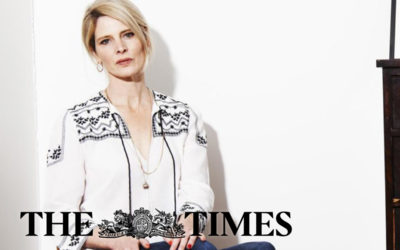How healthy is your relationship? The simple ways to find out

The key signs of a healthy relationship…
Attraction and intimacy
While it is natural that the burning attraction of the early days of a relationship might dim through time, continued desire and intimacy play a huge role in making sure a couple don’t turn into glorified roommates.
“A lack of attraction, along with the absence of physical touch or closeness, is one of the most common reasons relationships break down,” says couples psychotherapist Rebecca Sparkes. “Healthy relationships need to involve physical attraction and tenderness, as well as sexual intimacy.”
Physical touch itself can enhance emotional connection and intimacy. “This is because it promotes feelings of love and security,” explains chartered psychologist Dr Manpreet Dhuffar-Pottiwal. “So, incorporate small gestures of affection into your daily routine, such as hugs, hand-holding, or cuddling. The ‘five love languages’ concept outlined by Gary Chapman – words of affirmation, acts of service, receiving gifts, quality time and physical touch – can be a fun way to understand and encourage partners to identify and express affection in ways that resonate most with each other.”
When it comes to sex itself,Kate Moyle, a psychosexual therapist and spokeswoman for sexual wellness brand Lelo, suggests not worrying about regularity too much.
“A good sexual relationship can contribute positively to general relationship and intimacy wellbeing, and vice versa, but a strong sexual bond is not just about regularity of a sex life – it’s about communication, satisfaction and feeling you are generally aligned with your partner when it comes to sex,” she says.
“It is also about fostering a sexual relationship between you even at times you aren’t having sex. Couples often report that it’s not just the act of sex, but the feeling that they have their partner’s attention, feel desired by them and don’t only approach them with touch when they are interested in sex that is important.”
Quality time and enjoyment of each other’s company
“Healthy relationships are characterised by partners wanting to spend time with each other, more so than with other people,” says Sparkes. “A healthy couple should experience a level of looking forward to seeing their partner, even if they live together.”
With life as busy as it is, spending quality time with your partner, particularly if you live with them, can slip off the list of priorities. “To cultivate more of it, schedule regular date nights or even just ‘check-in’ moments where you focus solely on each other without screens,” suggests Dr Dhuffar-Pottiwal.
“It can also be useful to identify what renowned couples therapist John Gottman referred to as ‘the Four Horsemen’ – criticism, defensiveness, contempt, and stonewalling – which predicate a relationship breakdown, and make sure you replace negative interactions with positive ones during these times.”
Mutual support and encouragement
A supportive partner is like your own personal cheerleader. “They should boost your self-esteem and motivate personal growth,” says Dr Dhuffar-Pottiwal. “Feeling encouraged by them not only strengthens your bond, but leads to greater life satisfaction.”
“Healthy relationship should involve both partners actively supporting the other in their work, their social or family commitments, even if it means time apart or doesn’t include them,” agrees Sparkes. “A happy couple will express interest and pride in the other’s activities or achievements. So, get to know his or her work colleagues, accept invitations to join leisure activities, and ask questions. Supporting a partner’s work or interests requires effort, but is worth it.”
Respect
“Respecting each other’s boundaries, opinions and feelings is fundamental to maintaining a balanced relationship,” says Dr Dhuffar-Pottiwal. “It promotes equality and minimises power struggles.”
“Having a relationship in which you both feel respected, valued and treated fairly is essential,” agrees Dr Gisele Caseiras, a psychodynamic psychotherapist at Likeminds therapy. “No one should feel superior or inferior.”
You might cultivate this by showing appreciation for each other’s contributions to the relationship or household. “For instance, you can implement ‘appreciation rituals’ where partners take turns acknowledging one positive trait or action of the other,” advises Dr Dhuffar-Pottiwal.
A happy relationship also means respecting one another’s independence. “There should be a degree of separateness,” says Sparkes. “A healthy couple can rely on each other but there needs to be enough emotional separation whereby each partner can also be self-reliant.”
Conflict resolution
Every relationship will have its challenges, but the signs it is built to last is a commitment to tackling disagreements and difficulties in a healthy way.
“Effective resolution leads to deeper understanding, and can be cultivated by establishing ground rules for disagreements, such as avoiding personal attacks and taking breaks if emotions run high,” says Dr Dhuffar-Pottiwal.
“The Harville Hendrix Imago Dialogue technique can be useful for couples when processing conflicts – it is a powerful communication tool which asks couples to mirror or repeat back the other person’s feelings, then validate them, and finally show some empathy.”
Openness and safety
“If you feel comfortable being who you are and can openly communicate without worrying about judgements, you are likely to be in a healthy relationship,” says Dr Caseiras. “Feeling seen and heard and safe to be yourself often brings happiness and security.”
To foster this sense of safety, Dr Dhuffar-Pottiwal suggests asking open-ended questions and practising active listening. “Effective communication fosters trust and understanding. Partners feel safe sharing their thoughts and feelings, which strengthens emotional intimacy.”
Trust
One of the key ingredients of developing trust is time: you may not have it at the start of a relationship, as it takes a while to get comfortable with one another. But there are some other things you can do to develop and maintain trust.
“Being present and reliable is one of them – people establish trust when they experience someone who is there for them, shows up when needed and listens without judgement,” says Dr Caseiras.
“Also, sharing your ideas, perspectives, and thoughts is an excellent path to building trust in the relationship, as is avoiding secrets.
“That means being honest about what you are concerned about; you might be surprised to learn that someone might not have the same worries as you. Not only does this alleviate your concerns, it also builds trust in the relationship where people are allowed to share complicated feelings and thoughts.”
…And the 10 signs it won’t last
Not prioritising each other’s company
“This might show up as partners spending time on their own; even simplethings such as watching TV separately, or always being on a screen while at home,” says Sparkes. “Or it might be that one partner overbooks their spare time to spend with friends.”
A lack of interaction is a major red flag, agrees Dr Caseiras. “Life can get busy, and people often get occupied with work and studies,” she says. “If you notice that has happened, try to make time to connect genuinely. Open communication is one of the foundations of a healthy relationship, as the absence of it can cause resentment, hurt and misunderstandings.”
To stop this happening, “Make a conscious effort to engage in activities that promote emotional bonding, such as shared hobbies or deep conversations,” advises Dr Dhuffar-Pottiwal.
Lack of interest
You may spend lots of time in one another’s company, but you if you don’t show any interest in each other, it isn’t a good sign. “There needs to be some kind of appreciation for or interest in each other’s achievements or commitments,” says Sparkes. “Signs might be as simple as not asking about work; or not registering important work meetings or social activities. At its most troubling, it shows up as actively denigrating commitments which are important to their partner.”
This matters because it can lead to “emotional detachment”. “Emotional detachment signals that partners are no longer invested in each other’s well-being, leading to isolation and unhappiness,” explains Dr Dhuffar-Pottiwal.
Unwillingness to talk about the future
“Being evasive around future plans such as travel, or where a couple might want to live and work, is a sign that a relationship might not last,” says Sparkes.
“Couples who do not discuss future plans may lack commitment or shared goals, indicating uncertainty about the relationship’s longevity,” adds Dr Dhuffar-Pottiwal. “So, try to regularly initiate conversations about future aspirations together, be it personal or relational.”
Constant fighting – or over-avoidance of conflict
Find yourselves bickering about nothing? “Arguments can be an important sign that specific topics must be addressed,” says Dr Caseiras. “Try to have a conversation at a calm moment about what needs of yours are not being met and are resulting in arguments. If there is no specific pattern to the arguments, try to take perspective; perhaps it is an issue of accepting that you might have different opinions.”
But don’t avoid arguments altogether. “Avoiding conflict can lead to unresolved issues, building resentment over time and in term passive-aggressive behaviours,” warns Dr Dhuffar-Pottiwal. “It may create an illusion of harmony while underlying problems fester, so make sure to recognise that a certain amount of disagreement is normal.”
One-sided effort
“When one partner consistently puts in more effort, it can lead to feelings of resentment and imbalance, potentially causing one partner to feel taken for granted,” says Dr Dhuffar-Pottiwal.
“Remember that a relationship is a way for two or more people to connect,” agrees Dr Caseiras. “So, if you notice that you are the only one looking for ways to spend time together and improve the relationship, it may be time to rethink it.”
Criticism
“Frequent criticism can diminish self-esteem and lead to defensiveness, creating a toxic environment. It often indicates a lack of respect and appreciation,” says Dr Dhuffar-Pottiwal. “Be vigilant about how feedback is delivered. For instance, focus on using ‘I’ statements to express feelings rather than placing blame.”
Diminished affection
“A significant decrease in physical or emotional affection can signal a loss of connection, often leading to feelings of loneliness and discontentment,” says Dr Dhuffar-Pottiwal. “Regularly assess the levels of affection in your relationship. Also, you can utilise the ‘five love languages’ to ensure both partners’ needs for affection are being met.”
Insecurity
If you or your partner feel insecure in the relationship, it will manifest in negative ways, such as excessive envy. “Persistent jealousy and trust issues can create a hostile environment and undermine the foundation of trust,” says Dr Dhuffar-Pottiwal. “So, try addressing any underlying insecurities openly and work together to build trust.”
Control or manipulation
“Control, coercion and manipulation in a relationship is a major red flag,” says Dr Caseiras. “I have seen people romanticise it and mistake it for passion and love. Know that there is no typical age range for abuse and be aware of any signs of physical threat, stalking or excessive control. If you notice any of those, share with people you trust or speak to a mental health professional.”
Feeling unfulfilled
Sometimes a bad relationship isn’t one which is filled with hostility or specific problems or issues, but rather one that leaves us feeling unsatisfied overall.
“A sense of stagnation or unfulfillment can lead to dissatisfaction and a desire to seek happiness elsewhere, threatening the relationship’s longevity,” says Dr Dhuffar-Pottiwal.
“Make sure it doesn’t creep up on you by regularly having open discussions about your feelings of fulfilment and happiness within the relationship.”
Why you can’t stop picking your spots (even if you want to), according to a psychologist
If you secretly enjoy popping whiteheads or spending your evenings in...
12 things you should never say to your partner
Did you know that telling someone to ‘calm down’ during an argument might...
Coping with a sudden death
When a loved one or celebrity dies, it can trigger feelings of shock,...
“As the ‘forgotten friend’, I’m often a better friend to others than they are to me, and it’s lonely”
Are you there for everyone else but rarely prioritised in return? Here’s...
Don’t feel scared at thought of an ‘empty nest’ this September if you’re a solo parent – try to treat this seasonal time of transition as an opportunity to rediscover ‘you’
Whether you co-parent with your ex-partner or are bringing up your child...
Adolescent Mental Health
This article was published on Dr. Sophia Khalique Medical Practice's blog...
Benefits of group & individual therapy
As seen in the Simon, a 42-year-old graphic designer, recently undertook...
Why do I binge-eat and how can I face my guilt?
As seen in A few months ago I was tidying up after my youngest son’s...
Would you like to join our mailing list?
From time to time we may notify you of new blogs on the website, or share thoughtful, relevant articles and content, aimed at informing and helping people.
© 2020 Likeminds Psychotherapy and Coaching - London | Glossary | Privacy Policy | Site by Diagonal








